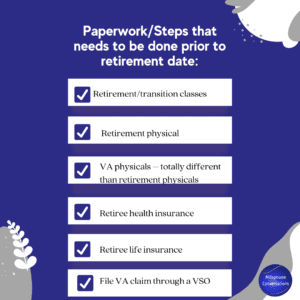
How do you process something for which you have very little context, knowledge, or understanding? I have had to keep asking questions and trying to build on my fund of knowledge, but some days my brain doesn’t want to cooperate.
For a little background, The Huz and I have been married for 29 years (in October), and together for 30 years. We met when I was a college senior and he was a high school senior. We married when he was 19, and had our first child when he was 20. He is a Marine Corps brat, and originally attempted to get into the Corps, but had a knee injury when he was in high school and the Corps determined that he was a poor risk, and rejected him. Four children and 6 years later, his father found a “back door” for him to get into the Navy, and he spent the last 21 years serving our country. He was sworn in by his father in Charlotte, NC, while we were living in South Carolina. Our first move was to Texas, in April, 2001, and we have a plaque that has 8 different duty stations listed on it, in 6 states, and 1 foreign country.
I grew up Mennonite, and my father has a very negative impression of the military, based on his horrible boot camp experience during the Vietnam War. I never knew anyone who had served or was serving. I found out later that my grandfather and grandmother were both involved in the military…but that was not something that was ever discussed in our home.
The moves, friends, and commands shaped who I am today. Suffice to say that I had no knowledge of the life I had in store when The Huz swore into the Navy at the age of 26, and I still was pretty clueless when he left for “A School” 18 months later when he went active-duty.
The Huz’s final duty station was a NOSC (Navy Operational Support Center – formerly known as a Reserve Center) in the middle-of-nowhere Illinois. There was little in the way of support for us as he prepared for the end of his career in the Navy. He had to travel more than 3 hours away for the retirement classes and retirement physical. We didn’t have a local Fleet and Family Support Center, any family group for support, or even a local military clinic. I was working two jobs, and trying to learn all I could about what military retirement would entail. He was getting some health things taken care of, and staying home with the kids (because Pandemic!) …along with recovery from two major surgeries in two years.
Fast-forwarding through more than 20 years of experiences is hard, as is preparation for retirement.
Things I have learned
Support groups online are a mixed bag. There are some with really great support, and some that are just a train-wreck. If you can find one that is good, yay!! If not, keep looking. I joined several groups, and have done a lot of weeding out stuff that was not helpful or productive.
The required retirement class is like drinking from a fire-hose. I was able to attend with him. There is no possible way to take it all in, and you will retain very little. Take good notes, and actually follow through with going back and rereading it all, and revisiting the websites in all of the handouts. Also, take advantage of the VSOs (Veterans Service Organizations) present at the class. A good one will be worth its weight in gold when it comes to getting the highest VA rating possible.
In looking at VA ratings, the VA does not do math in the same way that the rest of the world does math. Again, having a VSO rep to help with interpreting things is a must.
If your spouse (or you) is looking for a job, start ahead of time. Write a resume, and then get someone to look at it. A lot of VSOs have people qualified to help revise resumes. Set up a LinkedIn page, and get the same person to look at/revise the LinkedIn page. A lot of major companies are doing virtual interviews now, so have a place where the camera is not picking up the stray underwear, the dog/cat/kids can’t wander into the picture, and things will be relatively quiet for the duration of the interviews. Don’t know how to translate what you did in the military into civilian-speak? Those resume-savvy people are also good at translating. Expect there to be a LOT of condensing and revising of the resume, as the military acronyms need to be removed, and experiences need to be adapted to the job you are applying for. Military/Civilian contractor resumes are a TOTALLY different animal than are resumes for civilian jobs. You may need to keep several resumes on file (in the computer!), and be ready to revise for each position applied for.
Expect snafus on the parts of DEERS, TRICARE, and the VA. There will ALWAYS be snafus. Just roll with it. Don’t let it slide, but don’t get your panties in a wad either.
You don’t have to use your “last move” immediately. You can delay it for up to 4 years…but paperwork needs to be done.

Paperwork/Steps that needs to be done prior to retirement date:
* Retirement/transition classes
* Retirement physical
* VA physicals – totally different than retirement physicals
* Retiree health insurance
* Retiree life insurance
* File VA claim through a VSO
RESOURCES
Don’t feel like you’re alone. There IS a lot of help available.
One program that is available is called SkillBridge. The command has to sign off on the service member taking part in this program, which is not available everywhere (ask me how I know!). It is an unpaid internship program available for the service member to get to know a particular industry/company, and possibly transition from the internship into a paid position in the company. You can find more information about SkillBridge at https://dodskillbridge.usalearning.gov/
Spouse/Caregiver support groups:
Military Wives Retirement Transition – This is an information and support group for military spouses prepping to transition, transitioning, or recently transitioned out of the military!
Veteran Caregivers and Resources – This group is to discuss the issues we face as caregivers and to find resources. It is also a resource to Veterans and their families. To be in the group, you need to be either a caregiver or Veteran.
Veteran Care Giver – Veteran Caregiver’s goal is accessible information, education, and leadership to help ALL caregivers with a special focus on military caregivers. Caregiving is personal and there are 64 million caregivers in the U.S. with 5.5 million military caregivers. We educate, inform, and advocate for those who CARE!
Education Benefits
Once a VA disability rating has been received, there are MANY education benefits available, dependent on levels of rating. These are available to the Veteran, Spouse, and college-aged children (up to age 25). Most of us are familiar with the GI Bill, but there are many more, including Chapter 35, and Chapter 41. Also, schools with Yellow Ribbon programs should have a program director who can help with any information you need. You can get more information at https://www.va.gov/education/
FINAL THOUGHTS:
We are only about 7 months out from The Huz’s official retirement date. One of the challenges for me has been the change in thought-processes as we have transitioned away from the military. I have very little contact with other military or veteran spouses (except for online friends), and am finding that making local friends is a struggle. I struggle with settling down, and not having a plan in place for when we will be moving again. We are not in a place that we consider our “home” or “forever home”. We are definitely here for the next 18 months (until the youngest kidlet graduates high school), and we’ll see where we are at that point.
The Huz has already quit his first post-military job (not uncommon), and has applied for a different job, but is unsure about that one, too. He is still trying to sort through the plethora of information available about all the benefits he can receive, and trying to figure out which ones are automatic, and which he needs to file paperwork to receive.
One thing I have learned in this process that is important to remember…it’s new to everyone who is transitioning out of the military. It is not a road we have walked before, so it is going to be confusing, and sometimes overwhelming. ASK QUESTIONS. There are a LOT of resources available. Use them.
Author Bio:

Laura Paxton is a veteran wife and caregiver, mom to 6 kids, MIL to 2, Mimi to 2 cute little guys, and an aspiring counselor trying to get licensed in her 4th state since acquiring her degree in Clinical Mental Health Counseling. Read more from Laura at her blog: Team Paxton: A Day In The Life Of A Mom of Six




